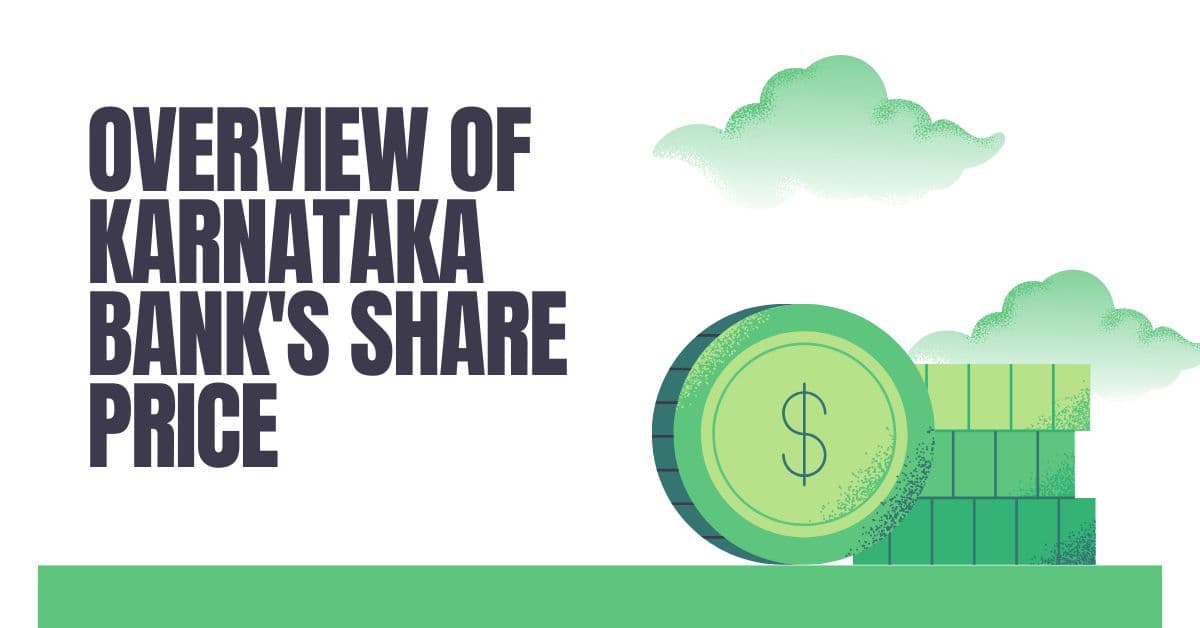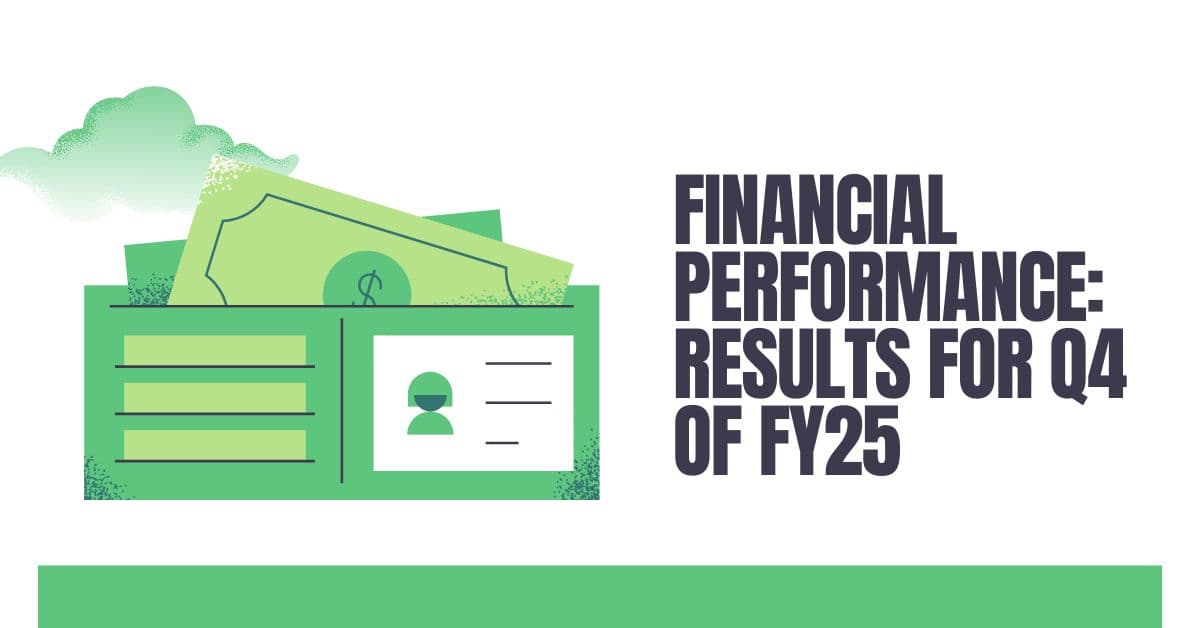Karnataka Bank Share Price: In 2025, Karnataka Bank, a well-known private sector bank in India, has been in the news a lot because of its recent financial results and volatile share price. The stock is trading at about ₹196.77 as of July 1, 2025, indicating a combination of investor caution and optimism in the wake of announced earnings declines and leadership changes. The bank offers a possible chance due to its improved asset quality and analyst buy ratings, but issues with CEO changes and debt stress need to be carefully considered. This article offers a thorough overview of Karnataka Bank’s share price movements, financial health, and doable strategies for managing personal debt stress while making prudent investments in 2025 for Indian investors, especially beginners.
Karnataka Bank Share Price: Current Situation
Karnataka Bank’s share price on the NSE is ₹196.77 as of July 1, 2025, up 0.57% from the closing of the previous day at ₹195.67 (Economic Times). Nonetheless, the stock has seen volatility, dropping 12.07% over the last year and 4.39% over the previous week. With a 52-week range of ₹162.20 to ₹245.00, it places theedade in July 02, 2025, 07:03:00 IST Assistant: ### Important Details
- According to research, leadership changes and a reported drop in profits in Q4 FY25 have caused volatility in Karnataka Bank’s share price, which was about ₹196.77 as of July 1, 2025.
- A low interest coverage ratio raises some concerns, but it appears that better asset quality—with a gross non-performing asset (NPA) of 3.08%—reduces worries about debt stress.
- The bank’s adjusted profit growth (35.6% in Q4 FY25) and analyst buy ratings, which indicate potential upside with targets as high as ₹298—are the strongest indicators.
- Although the bank’s foundations are still sound, there is disagreement about whether recent leadership changes indicate more serious problems.
Overview of Karnataka Bank’s Share Price

The share price of Karnataka Bank is now trading at around ₹196.77 as of July 1, 2025, up 0.57% from the day before but down 4.39% from the previous week (Economic Times). The CEO and Executive Director’s resignations caused a notable 5.75% decline on June 30, 2025, which alarmed investors about the stability of the company’s leadership (Moneylife). Despite this, value and income-focused investors find the company appealing due to its cheap P/E ratio of 5.84 and dividend yield of 2.54%.
Financial Health and Debt Stress
According to The Hindu BusinessLine, Karnataka Bank’s Q4 FY25 statistics indicate a net profit of ₹252.37 crore, which is 7.97% lower than the previous year. However, adjusted earnings, which do not include one-time charges like ₹113 crore for retirement benefits, increased by 35.6% to ₹372 crore. With Net NPA at 1.31% (down from 1.58%) and Gross NPA at 3.08% (down from 3.53%), asset quality dramatically improved, suggesting less debt stress from bad loans. Investors should keep an eye on a low interest coverage ratio, nevertheless, since it indicates difficulties in controlling interest costs (Screener).
Why Act Now?
With two buy ratings and one strong buy, analysts are still bullish, predicting a 37–51% increase in price between ₹270 and ₹298 (Economic Times). The bank is attractive due to its solid fundamentals, which include a dividend yield of 2.54% and a Capital to Risk-Weighted Assets Ratio (CRAR) of 19.85%. Changes in leadership and a drop in profits, however, call for prudence. Beginners might think about using platforms like Groww or Zerodha to allocate 5–10% of their portfolio as a starting investment.
How to Manage Debt Stress
To make Karnataka Bank investments without experiencing financial hardship:
- Budget Sensibly: To free up funds for investments, apply the 50/30/20 rule, which states that 20% of income should go towards debt reduction or savings.
- Limit Exposure: Until the leadership stabilises, keep your investments in erratic equities, such as Karnataka Bank, to 5–10% of your whole portfolio.
- Keep Up: Keep an eye out for company news, such new leadership appointments, on Moneycontrol.
- Consult Experts: To match investments with your objectives and risk tolerance, get guidance from a financial counsellor.
Financial Performance: Results for Q4 of FY25

Karnataka Bank’s net profit for the quarter that ended March 31, 2025, was ₹252.37 crore, a 7.97% decrease from ₹274.24 crore in Q4 FY24. According to The Hindu BusinessLine, net profit for the entire fiscal year 2024–25 was ₹1,272.37 crore, down 2.60% from ₹1,306.28 crore in FY24. However, these statistics were affected by a change in accounting policy and actuarial projections for retirement benefits of ₹113 crore. Without them, the adjusted profit after tax was ₹1,467 crore for FY25 (up 12.3%) and ₹372 crore for Q4 FY25 (increased 35.6% year over year), demonstrating better underlying performance.
Key banking performance measures show noteworthy developments in the Q4 FY25 financial results. Compared to ₹274.24 crore in Q4 of FY24, the net profit decreased 7.97% year over year to ₹252.37 crore. At ₹372 crore, the adjusted net profit, on the other hand, demonstrated a robust yearly rise of 35.6%. With net NPA down to 1.31% from 1.58% (a 27 basis point improvement) and gross NPA dropping to 3.08% (a 45 basis point decrease from 3.53%), asset quality dramatically improved. Better risk management was also reflected in the provision coverage ratio (PCR), which increased to 81.42%, up 2.2% from the previous year. A robust capital buffer was also indicated by the Capital to Risk-weighted Assets Ratio (CRAR), which was 19.85%. Despite a little decline in reported profit in FY25, these measures demonstrate solid asset quality and great financial resilience.
With an emphasis on retail growth, deposits increased to ₹1,04,807.49 crore and gross advances to ₹77,958.72 crore. Retail advances increased 15.44% to ₹39,273 crore, while CASA deposits increased 6.35% to ₹33,281 crore (The Hindu BusinessLine).
Recognising Banking Debt Stress
Non-performing assets (NPAs), or loans that are in default or at risk of default, are frequently referred to as “debt stress” in the banking industry. High NPAs indicate unstable finances, which affects stock performance and profitability. With Gross NPA at 3.08% (down from 3.53%) and Net NPA at 1.31% (down from 1.58%), Karnataka Bank’s improved asset quality shows that its loan portfolio is being managed effectively, which lowers worries about debt stress (Screener). The bank’s capacity to pay possible losses is further reinforced by its Provision Coverage Ratio (PCR) of 81.42%. But according to Screener, a low interest coverage ratio indicates difficulties controlling interest costs, which, if left unchecked, might put a pressure on resources.
Impact on the Market and Shifts in Leadership
The resignations of Executive Director Sekhar Rao (effective July 31, 2025) and CEO Srikrishnan Hari Hara Sarma (effective July 15, 2025) were announced by Karnataka Bank on June 30, 2025, with personal reasons given (Moneylife). Investor worries regarding the stability of the leadership were reflected in the 5.75% decline in the stock price. The bank’s press announcement correcting false media claims was mentioned in an X post by @Muhammed_iq_bal on July 1, 2025, with the goal of re-establishing trust (X Post). Investor mood will be greatly impacted by the effectiveness of the search committee the bank has established to select new leadership.
Analyst Suggestions
Three analysts are still positive on the company, with two advising “Buy” and one recommending “Strong Buy.” The analysts’ target prices are ₹270 (Axis Securities) and ₹298 (Anand Rathi), indicating a 37–51% increase from ₹196.77 (Economic Times). Value investors find the company appealing because of its possible undervaluation, as seen by its P/E ratio of 5.84, which is much lower than the industry average of 20.66.
Appeal for Dividends
Income-focused investors were enticed by Karnataka Bank’s announcement of a final dividend of ₹5 per share for FY25, which would yield 2.54% at the present price (The Hindu BusinessLine). Its investment case is strengthened by its consistent payment and solid fundamentals.
Stress Management for Personal Debt in Investing
Effectively managing personal debt can allow you to invest in Karnataka Bank without experiencing financial strain:

- To free up funds for investments, apply the 50/30/20 Rule: Set aside 50% of income for necessities, 30% for desires, and 20% for savings or debt reduction (NerdWallet).
- Prioritise High-Interest Debt: Credit card debt should be paid off before investing since interest rates range from 20% to 40%, which frequently outstrip stock returns of about 10%.
- Limit Exposure: To reduce risk during leadership changes, keep your portfolio’s proportion of investments in volatile stocks, such as Karnataka Bank, between 5 and 10%.
- Keep Up: Keep an eye out for business news, such the hiring of a new CEO, on Moneycontrol.
- Use Reliable Platforms: For safe transactions, invest using applications like Groww or Zerodha that are governed by SEBI.
- Consult with a Financial Advisor: To match investments with your financial objectives and risk tolerance, get expert advice (Bajaj Finserv).
An Example from Real Life
Situation: Arjun, a 30-year-old Bengaluru-based IT worker who makes ₹50,000 a month, has ₹1 lakh saved and ₹50,000 in credit card debt with a 24% interest rate.
Arjun takes action by setting aside ₹10,000 per month (20% of his salary) to pay off his debt in about six months and avoid paying ₹12,000 in interest each year. He then uses Groww to purchase about 25 shares of Karnataka Bank for ₹196.77, investing ₹5,000 (5% of his portfolio) in these shares.
Result: His investment increases to ₹6,750, a 35% return, plus ₹125 in dividends (25 shares × ₹5) if the stock hits ₹270 in a year. Arjun leverages the bank’s development potential by investing without financial burden by prioritising debt management.
Frequently Asked Questions (FAQs)
Why does the share price of Karnataka Bank fluctuate?
Although the fundamentals are still sound, recent leadership changes and a reported drop in profits have alarmed investors.
Is Karnataka Bank under difficulty from debt?
While improved NPA ratios (3.08% Gross, 1.31% Net) indicate less stress from debt, a low interest coverage ratio should be closely watched.
In 2025, is Karnataka Bank a wise investment?
A low P/E ratio and analyst projections of ₹270 to ₹298 indicate upside potential, although prudence is needed when changing the leadership.
In order to invest, how can I manage my debt?
Make paying off high-interest debt your top priority, stick to your spending plan, and keep your portfolio’s equity exposure to 5–10%.
Where can I purchase shares of Karnataka Bank?
For safe investing, choose SEBI-regulated platforms such as Groww or Zerodha.
Conclusion
Although Karnataka Bank’s share price of ₹196.77 indicates volatility due to reported profit declines and changes in leadership, resilience is shown by excellent adjusted earnings and improved asset quality. The company provides value for cautious investors with a 2.54% dividend yield and analyst projections indicating substantial potential. You may invest in Karnataka Bank without experiencing financial difficulty if you prioritise high-interest repayments and manage your personal debt through budgeting. To take advantage of this chance in 2025, start small, use Moneycontrol to keep informed, and speak with a financial counsellor.
Disclaimer: Investing in the stock market is risky. Before making an investment, speak with a knowledgeable financial counsellor. The article is just meant to be instructive.
Buy Now Pay Later Can Trap You in Debt: Here’s What No One Tells You
Accenture Share Price is Rising: Manage Debt Before You Miss Out!
ONGC Share Price Target Rising: Manage Debt Before You Invest!

